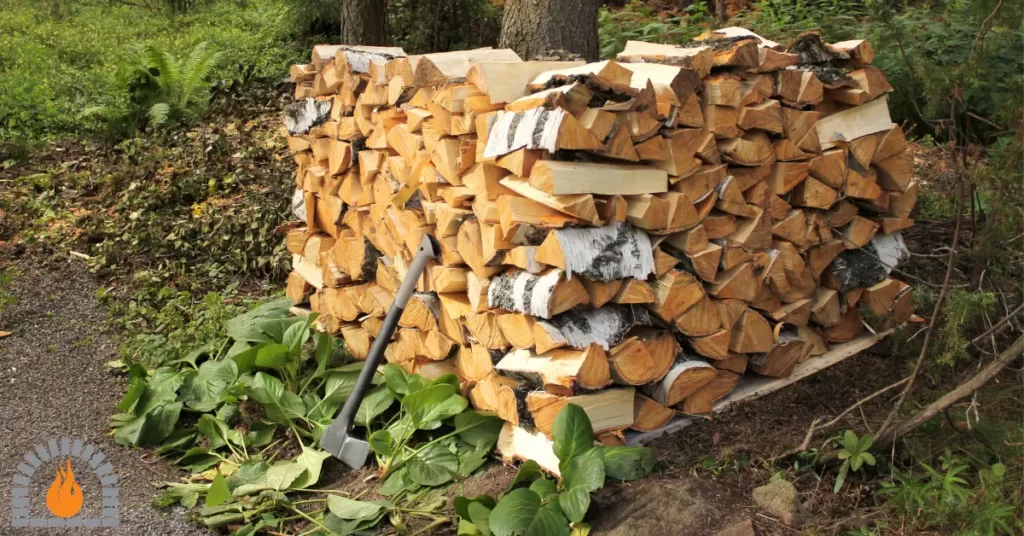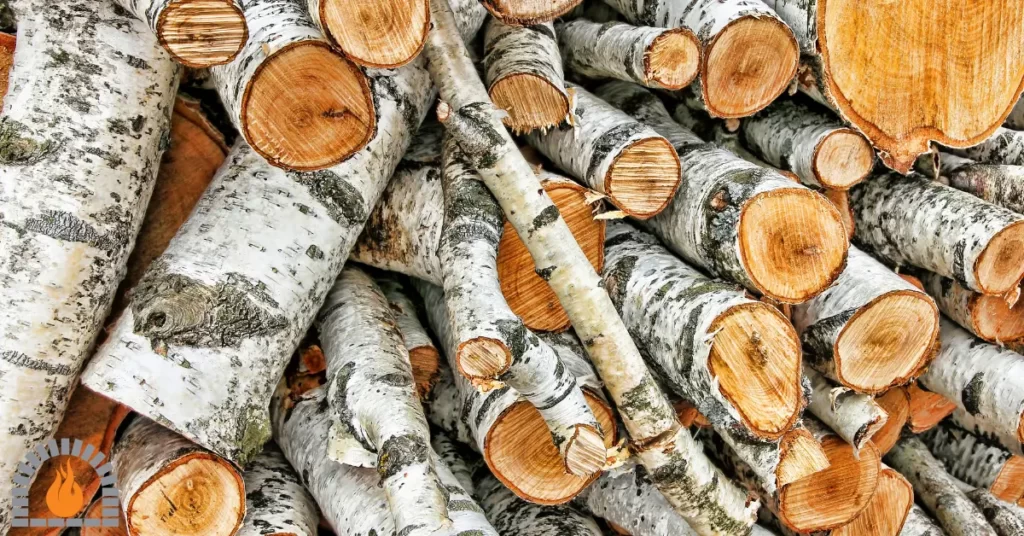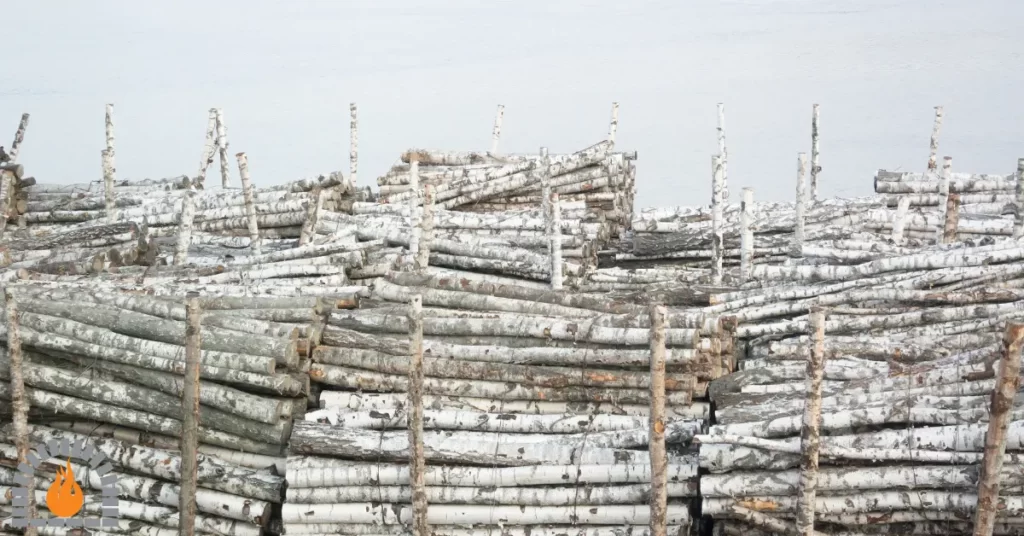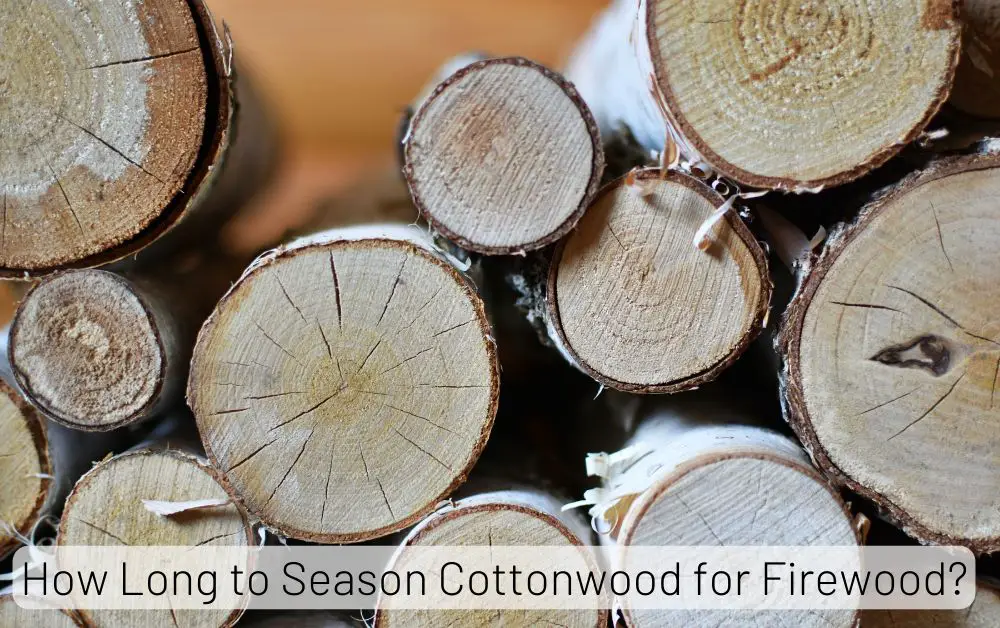As winter’s chill settles in, many homeowners find solace in the warmth of a crackling fire. The choice of firewood plays a crucial role in ensuring a cozy and efficient heating experience. One wood type that often piques the interest of those seeking a reliable fuel source is river birch. Is river birch good firewood?
Known for its distinctive bark and graceful appearance, river birch trees are commonly found along waterways and in urban landscapes. However, when it comes to using river birch as firewood, questions arise about its efficacy and performance in the fireplace or wood stove.
Overview
River Birch is renowned for its clean and consistent burn. The river birch firewood produces a steady flame and emits a pleasant aroma, making it an excellent choice for indoor heating. Its moderate density allows for a manageable fire that can be easily controlled.
The Basics of River Birch
River birch, known scientifically as Betula nigra, is a deciduous tree native to North America. Recognized for its distinctive peeling bark and vibrant green leaves, this tree has gained popularity not only for its ornamental appeal but also for its potential as firewood.
Is River Birch Good Firewood?
Yes, River Birch is good firewood. It has a relatively high heat output compared to softwoods and can produce a significant amount of heat when burned. Birch wood, in general, seasons relatively quickly compared to some other hardwoods and tends to produce less smoke than some other types of firewood.
This can be beneficial for indoor fireplace use as it minimizes the buildup of creosote in chimneys.
However, if you do not split it or remove a good amount of the bark, the middle will decay faster than it dries, and it will not make very good wood.
| Characteristics | River Birch Firewood |
|---|---|
| BTU Content | High (26.6 MBTU) |
| Smoke | Low |
| Popping | Low |
| Sparking | Low |
| Coaling | Moderate |
| Ease of Seasoning | Moderate |
| Ease of Splitting | Easy |
| Moisture Content | Moderate |
| Fragrance | Pleasant |
| Flame Appearance | Vibrant |
| Burn Time | Moderate to High |
| Resin Content | Low |

Pros of River Birch Firewood
- River Birch is known for producing a significant amount of heat when burned. This makes it a good choice for heating purposes, such as in wood-burning stoves or fireplaces.
- River Birch tends to have a relatively straight grain and is easier to split compared to some other types of hardwood. This can be advantageous for those who split their own firewood.
- Birch wood, in general, tends to produce less smoke compared to some other types of firewood. This can contribute to a cleaner and more enjoyable burning experience.
- The firewood has a pleasant aroma when burned, which can enhance the overall ambiance of a fire. The aromatic qualities can be particularly appealing in indoor fireplaces.
- Birch wood, including River Birch, tends to dry relatively quickly compared to some other hardwoods. This can be beneficial for those who need to use the firewood soon after cutting or purchasing it.
- Produces a visually appealing flame with a nice flicker. This can enhance the aesthetics of a fire and make it more enjoyable to watch.

Cons of River Birch Firewood
- River Birch tends to burn more quickly than some other hardwoods.
- Compared to some dense hardwoods like oak or hickory, River Birch has a lower energy density. This means it may not produce as much heat per unit of volume, requiring a larger quantity for the same heating effect.
- Improper seasoning can lead to less efficient burning and increased production of creosote, a substance that can accumulate in chimneys and pose a fire hazard.
- If you’re looking for firewood to provide a slow, long-lasting burn, River Birch might not be the best choice due to its tendency to burn quickly.
- The wood can pop and throw sparks while burning. This can be a concern, especially in open fireplaces, where sparks may pose a safety risk.

Considerations for Allergies
While river birch is generally safe for burning, individuals with specific allergies to birch pollen should exercise caution.
It’s advisable to consult with a healthcare professional if there are concerns about potential respiratory reactions.
Recommended Seasoning Time
To maximize the benefits of river birch as firewood, it’s crucial to season it properly.
Aim for a seasoning time of at least six months to a year, ensuring the wood reaches the optimal moisture content for efficient burning.
Blending with Other Firewood
For enhanced performance, consider blending river birch with other hardwoods.
This combination can create a well-balanced fire with extended burn times and increased heat output.
Safe Precautions for Using River Birch Firewood
Using river birch firewood can be a great way to heat your home, but it’s important to take certain precautions to ensure safety.
- Season the Firewood:
- River birch, like other types of wood, should be properly seasoned before use. Seasoning involves allowing the wood to dry out, usually for at least six months to a year. This helps to reduce moisture content, making the wood burn more efficiently and produce less creosote.
- Store Firewood Properly:
- Store the firewood in a dry, well-ventilated area to prevent it from absorbing moisture. This helps maintain its dryness and reduces the risk of mold or fungi growth.
- Inspect for Pests:
- Before bringing firewood into your home, inspect it for pests like insects or spiders. You don’t want to introduce unwanted guests into your living space.
- Use a Screen or Spark Arrestor:
- When burning river birch firewood in an open fireplace or wood stove, use a screen or spark arrestor to prevent sparks or embers from escaping and causing a potential fire hazard.
- Keep Chimneys and Flues Clean:
- Regularly clean and inspect your chimney and flue to remove any buildup of creosote, which can lead to chimney fires. A professional chimney sweep can help ensure safe and efficient operation.
- Maintain a Safe Distance:
- Keep flammable materials, furniture, and other items at a safe distance from the fireplace or wood stove to prevent accidental fires.
- Use a Fireproof Mat:
- If you have a wood stove, place a fireproof mat underneath it to protect the floor from heat and sparks.
- Install Carbon Monoxide Detectors:
- Wood burning can produce carbon monoxide, so it’s essential to have working carbon monoxide detectors installed in your home. Check the batteries regularly.
- Follow Local Regulations:
- Be aware of and follow any local regulations or restrictions regarding the use of wood-burning appliances. Some areas may have specific guidelines to reduce air pollution.
- Learn Proper Fire-Building Techniques:
- Educate yourself on proper fire-building techniques to maximize heat output and minimize the production of creosote.
Final Thoughts: Is River Birch Good Firewood?
In conclusion, river birch stands as a commendable choice for firewood, offering a balance of density, cleanliness, and accessibility. When properly seasoned and used in conjunction with other hardwoods, it can provide a reliable source of heat for your home.
Affiliate Disclosure: Fireplaceadviser.com is a participant in the Amazon Services LLC Associates Program. We may earn a commission when you click on certain links on this site and purchase.

Hello!! I am Jamal Khan. I often fix my home electric heaters and gas stove problems and research the common issues in the heating units to improve my knowledge and expertise. The aim of establishing fireplaceadviser.com is to share my expertise and knowledge with my audience.











